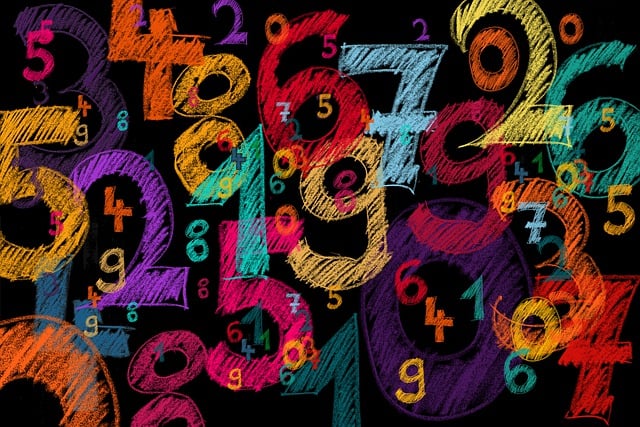Read: 7 min 6 sec
21 December, 2022

Prime numbers are an important part of mathematics, but what exactly are they? In this blog post, we will explore prime numbers and why they are so fascinating.
We’ll look at the definition of a prime number and why certain numbers qualify as primes. Finally, we’ll discuss some interesting facts about prime numbers that might surprise you.
A prime number is a positive integer (whole number) that can only be divided by one and itself. Put another way, the only factors of a prime number are 1 and the number itself. For example, the number 5 is considered a prime because it can only be divided evenly by 1 and 5; any other number would result in a remainder when dividing. Some other examples of prime numbers include 2, 3, 7, 11, 13, 17, 19 and 23.
It’s important to note that there is no highest or largest prime number since there is always the possibility for bigger ones to exist. As technology improves over time, new methods have been developed to determine more large primes more quickly than ever before—the largest known prime today has 23 million digits!
Prime numbers have long been used in cryptography due to their unique properties which make them difficult to calculate or crack codes based on them. They also have applications in many different areas such as computer science and engineering as well as pure mathematics research. Primes can also help us understand things like ancient Greek music theory or patterns found in nature like Fibonacci sequences. Additionally, understanding primes can help us better understand some unsolved mathematical problems such as the Riemann hypothesis or Goldbach’s conjecture which remain unresolved today despite centuries of effort from mathematicians around the world.
As you can see, prime numbers play an important role in mathematics and its related fields. They are intriguing because they cannot be reduced further without using negative numbers or fractions and they may provide insight into unsolved mathematical problems from centuries ago! Whether you’re an amateur mathematician or a professional researcher studying advanced topics like cryptography or music theory, understanding primes will no doubt prove useful for your endeavors!
Prime numbers are a special type of number with specific characteristics. They’re the building blocks of mathematics, and have some interesting properties that make them an important part of many calculations. In this blog post, we’ll explore what prime numbers are and why they’re so important in the world of math.
Prime numbers are positive integers (whole numbers) that can only be divided by themselves and 1. For example, 3 is a prime number because it can only be divided by 3 and 1. Similarly, 5 is also a prime number since it can only be divided by itself and 1.
There is no set formula for determining whether or not a number is prime. The best way to figure out if a number is prime or not is to divide it by every integer between 2 and the square root of that number (inclusive). If none of them produce a remainder (the answer to the division problem is an integer), then the number being tested is not a prime number.
Prime numbers have been studied extensively throughout history, especially in relation to cryptography. Prime numbers are used as the foundation for certain encryption algorithms, which helps keep our data secure when sending information online. Additionally, prime numbers play an important role in other areas of mathematics such as probability theory, computer science, and number theory.
Prime numbers play an integral role in many aspects of mathematics—from encryption algorithms used to protect our data online to advanced concepts like probability theory and computer science—and their importance cannot be overstated. As mysterious as they can sometimes seem, understanding prime numbers can open up new doors into exploring further mathematical topics. Hopefully this post has given you a better sense of what makes prime numbers so special!

If you’re looking for a comprehensive list of prime numbers, you’ve come to the right place. Prime numbers are an important mathematical concept that has been studied for centuries. In this blog post, we’ll discuss what prime numbers are, why they are important, and provide a comprehensive list of prime numbers up to 100.
In the most basic terms, prime numbers are those that can only be divided by themselves and 1 (e.g., 2, 3, 5, 7). This means that if you divide a number by itself or 1 it will always produce a whole number—this is known as an integer. Any number that is not divisible either by itself or 1 is considered composite (e.g., 4 or 6). As a result, all primes are integers since they cannot be divided any further without producing fractions.
Prime numbers have many applications in mathematics and science. For example, they are used to generate encryption keys because it is difficult to factor large prime numbers into smaller ones. This means that the only way to figure out the original two primes used in an encryption key is to try every possible combination until one works—an extremely time-consuming process! Prime numbers also appear in nature and have been used throughout history to order musical scales and create symmetry in artworks such as mosaics and quilts.
Comprehensive List of Prime Numbers Up To 100
2 3 5 7 11 13 17 19 23 29 31 37 41 43 47 53 59 61 67 71 73 79 83 89 9
Prime numbers play an integral role in mathematics, science, nature and society at large. Understanding them can help us better appreciate the beauty of our world while unlocking new opportunities for problem solving. We hope this list of prime numbers up to 100 helps you on your journey towards understanding them better!
Prime numbers are the building blocks of mathematics. But what exactly are they? Prime and composite numbers form the backbone of many mathematical concepts, from fractions to algebra. In this blog post, we’ll explore what prime and composite numbers are, how they work, and why they’re important.
A prime number is any positive whole number (greater than zero) that can only be divided by itself and one. In other words, it has no other factors besides one and itself. Examples of prime numbers include 2, 3, 5, 7, 11, 13, 17, 19 and so on. All prime numbers must end in 1 or 7 when written in base 10 notation.
Composite numbers are any positive whole number that can be divided by more than just itself and one. For example, 6 is a composite number because it can be divided by 2 (6/2 = 3), 3 (6/3 = 2), or 6 (6/6 = 1). Any number ending in an even digit (other than two) is always a composite number as well since all even numbers can be divided by two with no remainder.
Note that 0 (zero) is neither a prime nor a composite number because it cannot be divided – it has no factors whatsoever!
Prime and composite numbers are essential for understanding fractions – when you divide fractions with common denominators you’re really just working with multiples of primes! Likewise, when you’re working with equations or algebraic expressions containing variables like x or y , the coefficients must often first be broken down into their prime factors before any further calculations can take place. Prime and composite numbers also play an important role in cryptography – computer algorithms use them to encode messages securely so that only the sender and recipient can understand them.
Knowing how to identify prime and composite numbers may not seem important at first glance but in reality these special types of integers form the foundation for many modern technologies as well as many branches of mathematics such as algebra, geometry, trigonometry etc. For high school math students looking to gain a deeper understanding of these concepts – knowing what makes a prime or composite number is an invaluable skill!